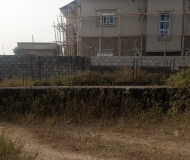
Understanding Land Documents in Nigeria’s Real Estate Industry
The importance of land documents in the Nigerian real estate industry cannot be overstated. Many individuals often underestimate their significance until they find themselves facing issues that could potentially lead to the loss of their property, whether to the government or another party. In this article, we delve into the world of land documents in Nigeria, shedding light on their importance and various types.
The Family Receipt Misconception
One common misconception is regarding the family receipt as a valid land document. While it may serve as evidence of payment for land, it does not hold water when it comes to establishing ownership or possession. It’s crucial to understand that mere payment for a piece of land does not confer ownership rights.
Ownership Beyond Structures
Another misconception is that building a structure on a piece of land secures ownership. Irrespective of the structures on a property, ownership is determined by possessing the right legal documents. According to Nigerian law, everything on a land parcel belongs to the landowner. Therefore, even if you’ve built a house on a piece of land, the land’s rightful owner maintains ownership.
Types of Land Documents in Nigeria
Now, let’s explore the different types of land documents in Nigeria and what sets them apart:
1. The Land Use Act
Historically, land administration in Nigeria was under the control of traditional rulers. Different regions operated distinct systems of land control. However, in 1978, during the Obasanjo regime, these systems were overhauled, giving birth to the Land Use Act. This act vested all land in the hands of the government, abolishing previous tenure arrangements.
The Land Use Decree brought several advantages:
- It introduced government control to facilitate land use programs.
- It eliminated disputes arising from land ownership.
- It curbed land speculation.
- It promoted balanced regional development.
- It protected Nigerians’ rights to hold and enjoy land.
- It simplified land management and ownership.
- It encouraged the development of the agricultural sector.
2. Land Classification
Before delving into specific land documents, it’s essential to understand land classification in Nigeria’s real estate sector. Land can be classified as either “free” or “acquired.” A parcel of land is considered “free” when the government has no interest in it. Such land often has a gazette, Certificate of Occupancy (C of O), or governor’s consent, making it safe to purchase.
However, any land falling within designated “urban areas” is typically under government acquisition until deemed “committed” or “free.”
- Committed Acquisition: The government intends to use such land for specific purposes like providing amenities. Such land belongs to the government and cannot be used by individuals.
- Global or General Acquisition: Lands under “general acquisition” can later be confirmed as “free” or “committed.” The process of converting “general acquisition” land to “free” land is called “excision.”
“Estate in land” refers to the amount and type of interest a person holds in real property. There are two major classifications:
- Freehold Estates: These estates have an indefinite duration and can last forever. They involve full ownership without government intervention. Freehold estates are inheritable by heirs and come in two types: Fee Simple and Life Estate.
- Fee Simple: This is the highest form of interest in real estate, with unlimited duration. It can be inherited.
- Life Estate: Limited in duration to the owner’s life or specified individuals’ lives, this estate is not inheritable.
- Non-Freehold Estates: Also known as Leasehold estates, these are not inheritable and exist without full ownership. Examples include Tenancy for Years, Tenancy from Period to Period, Tenancy at Will, and Tenancy at Sufferance.
Read also: Mararaba, Nassarawa State: Real Estate Investment – An Encouraging Prospect
4. Deed of Assignments
A Deed of Assignment is a vital document in land transactions in Nigeria. It represents an agreement between the seller and buyer, indicating that the seller has transferred all rights, title, interest, and ownership of the land to the buyer. This document serves as proof of ownership in favor of the seller. It must include essential details like the parties involved, property description, cost, history, and covenants.
5. Survey Plan
A Survey Plan is crucial for measuring and describing the boundaries of a land parcel accurately. It includes the owner’s name, address, land size, beacon numbers, surveyor’s details, and information on government acquisition. A proper survey plan ensures the land’s boundaries are clearly defined.
Understanding land documents in Nigeria’s real estate industry is essential for anyone involved in property transactions. These documents play a critical role in establishing ownership, avoiding disputes, and ensuring the legality of land transactions. It is advisable to consult legal professionals when dealing with land-related matters to ensure compliance with Nigerian laws and regulations.





